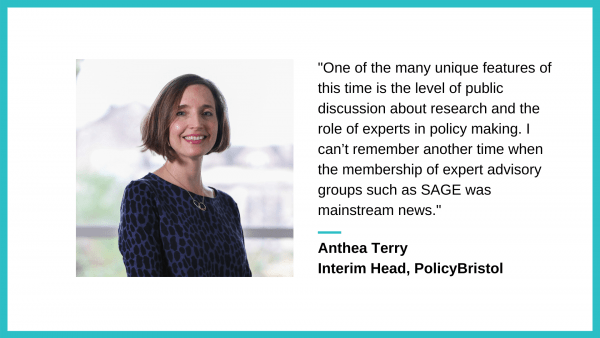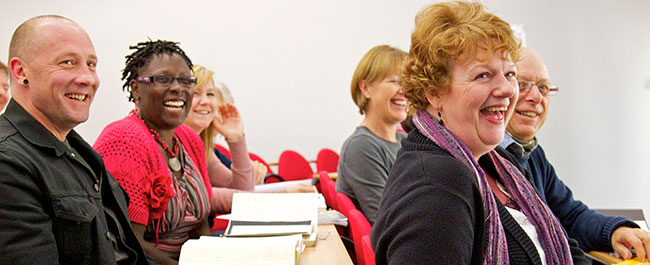
This blog post was written by Anthea Terry, Interim Head of PolicyBristol and was originally published Universities Policy Engagement Network (UPEN) blog. Read the original article.
Michael Gove famously said in 2016 that ‘people in this country have had enough of experts’, and with social media ‘bubbles’, fake news, and the media desire to present opposing viewpoints – however marginal – it can often feel this way.
But the actual public perception of experts and their work is more nuanced. A 2018 survey by the Wellcome Trust found that 82% of people said they were fairly or very interested in health research, up from 77% in 2015, and 75% in 2012.
The value placed on experts by policymakers has always been variable and hard to measure, ‘evidence-based policymaking’ has been around for decades, and for almost as long, the perhaps inevitable cynicism about ‘policy-based evidence making’. We have incredible success stories about research influencing policy (my favourite being the research on CFCs that led directly to the Montreal protocol and recovery of the ozone layer), yet the combined weight of almost all the world’s climate scientists fails to enact sufficient policy change.
One of the many unique features of this time is the level of public discussion about research and the role of experts in policy making. I can’t remember another time when the membership of expert advisory groups such as SAGE was mainstream news. Similarly, a call for participants in a Covid-19 vaccine trial in Bristol was shared on neighbourhood WhatsApp and Facebook groups, and I’m talking to my family about R-numbers and logarithmic growth curves whilst lamenting the lack of supermarket delivery slots.







